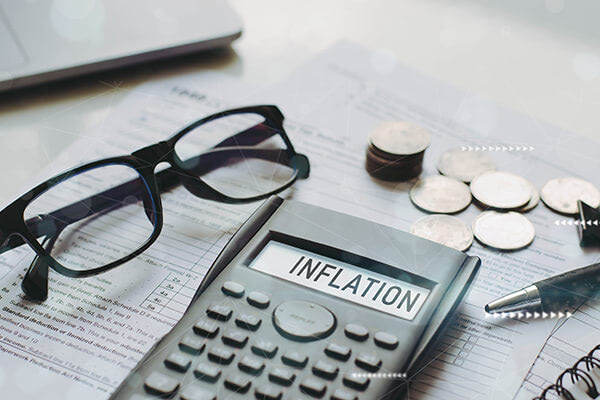What does it mean now that the Bank of Canada has paused rate hikes? Here’s what you should know about the central bank’s movements.

Is it still a good time to take a variable rate?
Variable interest rates keep rising, and for some borrowers the idea of taking a variable-rate mortgage right now seems undesirable. It’s understandable that these changes are causing some hesitation to commit to this type of product, and you may be wondering if variable rates will become pricier than fixed rates. However, despite recent rises, it’s still a very good time to take a variable rate. Here are the four biggest advantages of a variable rate today compared to a fixed rate.
#1 Variable rates are lower than fixed rates
Currently, and historically speaking, variable rates tend to be lower than fixed rates. We have stated this many times, but we’ll say it again: Variable rates are rising from their lowest point, so even with several rate hikes, they are much lower than fixed rates. The prime rate right now is 3.70 per cent. Right now, clients can expect to see variable-rate mortgages between prime minus 40 and prime minus 100. Fixed-rate mortgages mostly sit above four per cent right now, and higher. Borrowers will certainly pay more interest with a fixed rate than if they take a variable rate.
#2 A recession will favour variable rates
You have likely heard all the rumours that Canada is headed for a recession within the next year or two. If a recession does hit, variable rate holders will be much luckier than those with fixed rates. Variable rates are likely to keep increasing for the next 12 to 18 months, but if we experience a recession, they will be set to fall once again. This will benefit variable rate borrowers, who will enjoy low rates as they make their way through the recession. Fixed rate holders will be stuck with the same pre-recession rates, which will be much higher.
#3 Easy to convert if necessary
Variable rates generally have more flexibility and don’t keep as strong of a hold on borrowers as fixed rates. This means it’s easy to convert to a fixed rate at any point if that becomes more beneficial to you. Borrowers can choose to switch at almost any time with ease, and they can receive the fixed rates of the day when they do so. While variable rates are generally the better choice, it’s also worth keeping your options open in case your situation changes so that a fixed rate becomes better for you.
#4 Penalty to break is softer
Breaking your mortgage terms comes with penalties, but variable-rate penalties are much softer than borrowers who break a fixed rate. Breaking a fixed-rate mortgage results in paying the higher amount of either three months’ interest, or an interest rate differential (IRD). Breaking a variable-rate mortgage, meanwhile, always means the borrower pays three months’ interest. An IRD will almost always be higher than three months’ interest today, meaning that breaking a fixed rate will be more expensive.
While variable rates are more unpredictable, it’s a good time to take a variable rate because of how much more affordable and flexible it is. If you need help determining your mortgage needs and deciding on the product that’s best for you, contact a mortgage professional! We can help you ensure you find the right mortgage solution that works for you.
If you have any questions about your mortgage, get in touch with us at Clinton Wilkins Mortgage Team! You can call us at (902) 482-2770 or contact us here.


